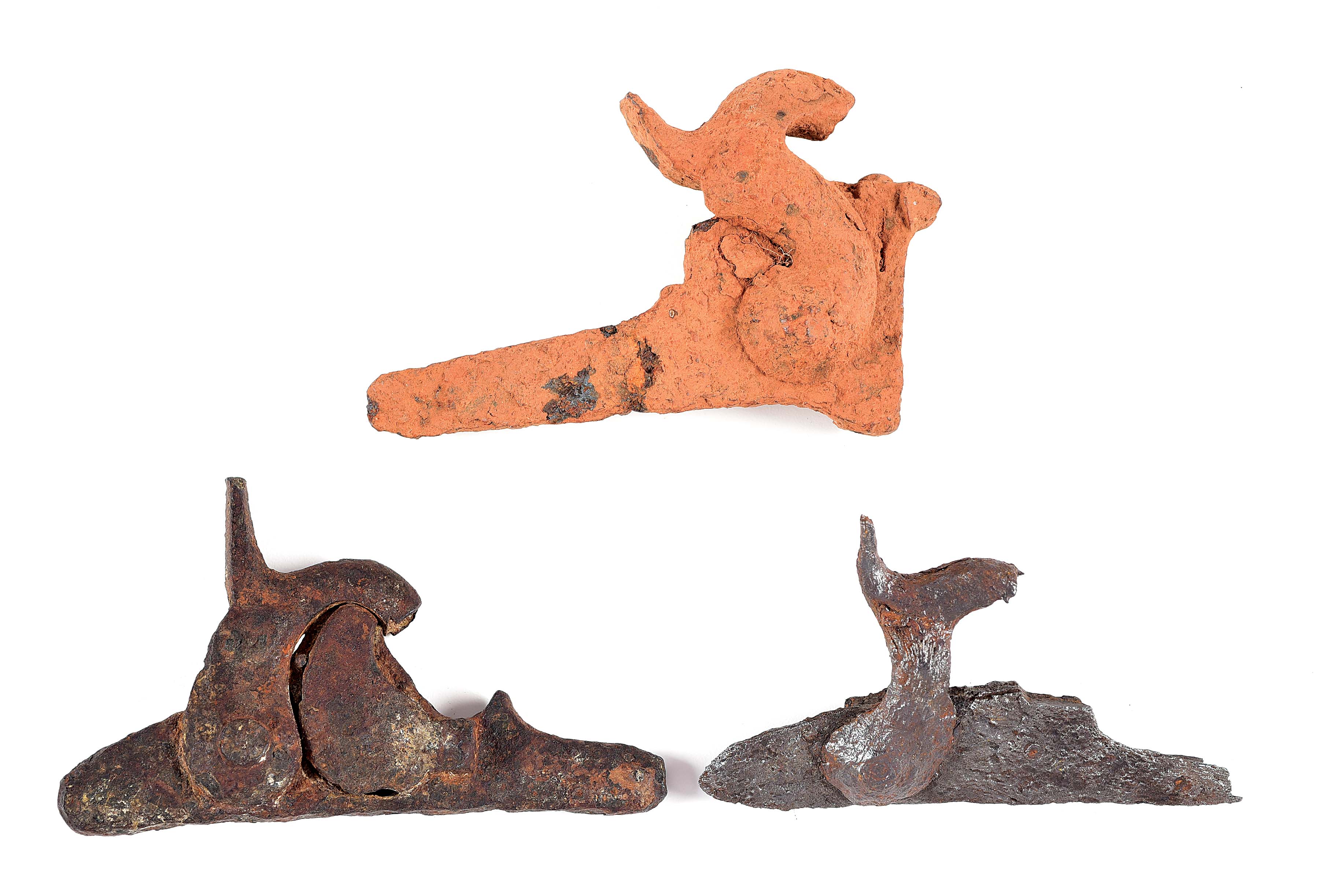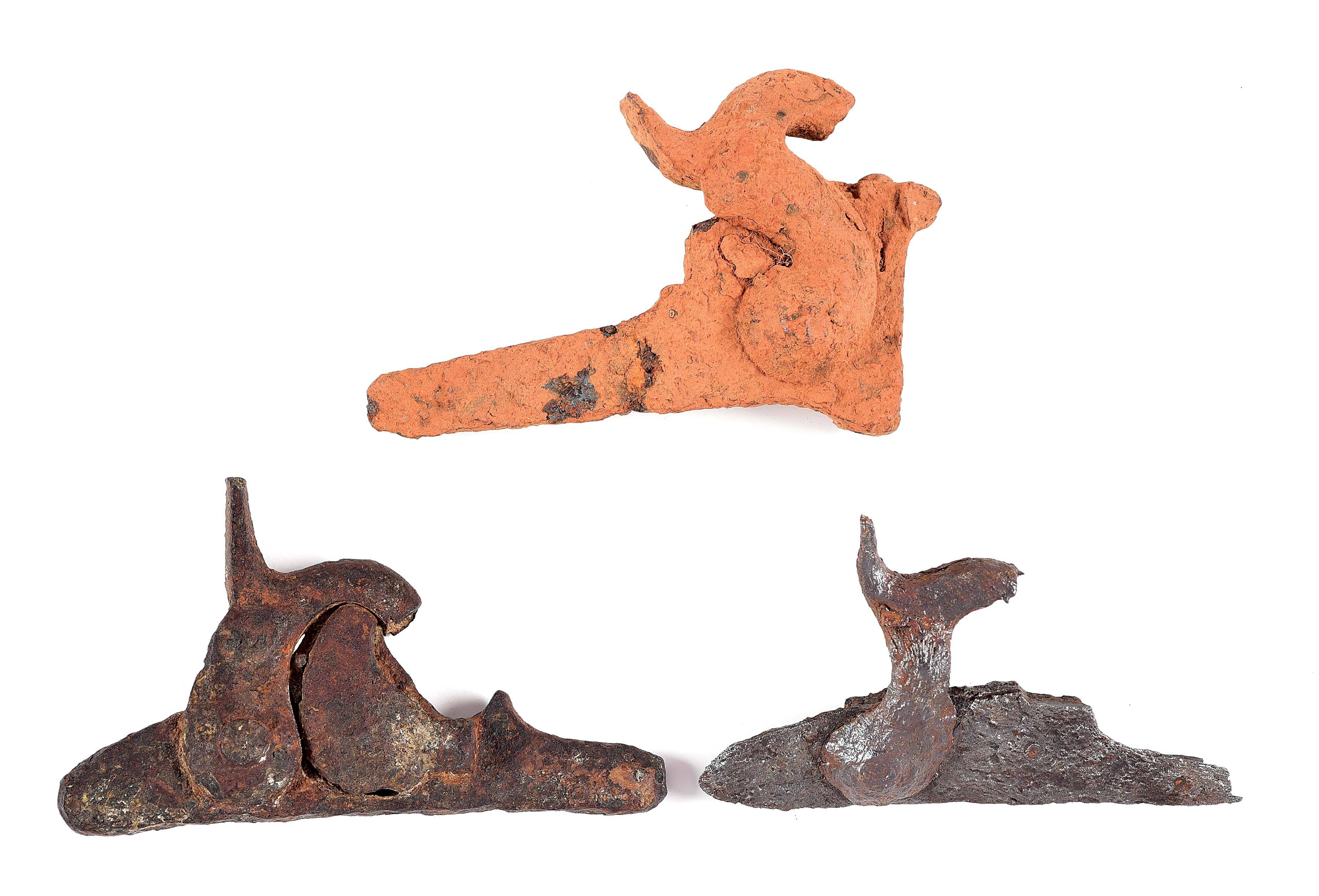CIVIL WAR]. [JOHNSTON, Joseph E.]. ANDERSON, Archer. Lieutenant Colonel, C.S.A., Johnston's Aide-de-camp . Autograph document signed ("Archer Anderson"), General Orders No. 18, a statement of the terms of Johnston's surrender to William T. Sherman with instructions to Confederate officers and soldiers, "Hd Qrs Army Tenn near Greensboro, N.C.", 27 April 1865. 1 page, folio, light blue stationery, marked "Official," minor rust stains and browning . JOHNSON SURRENDERS TO SHERMAN: "SPARING THE BLOOD OF THIS GALLANT ARMY AND SAVING OUR COUNTRY FROM FURTHER DEVASTATION" An official contemporary copy of Johnston's General Orders #18, in the hand of his aide-de-camp, in which the Confederate commander announces the surrender of his battered army to Union General William T. Sherman, discusses the terms, gives his men instructions and explains to them why such a course was necessary. After his successful "March to the Sea" and the capture of Savannah, Sherman moved his army north to wage war upon the relatively untouched Carolinas. Facing only scattered opposition, Sherman's men wreaked havoc upon the Confederate infrastructure, destroying railroads, resources and cotton. General Lee, recently placed in command of all Confederate armies, requested that Johnston be brought out of retirement to take command of southern forces opposing Sherman. Desperately outnumbered, Johnston consolidated his forces and attempted to strike a portion of the Union Army as it moved through North Carolina. At the Battle of Bentonville, fought on 19 March 1865, Johnston failed to defeat Union forces under the command of General Henry Slocum and was forced to retreat. In April, with the situation in his front looking increasingly hopeless and having only recently learned of Lee's surrender at Appomattox, Johnston requested an armistice. He met with Sherman at the Bennett House on April 17 and 9 days later, on April 26, the two men signed an agreement of surrender. Here, one day later, Johnston informs his men: "By the terms of a military convention made on the 26 inst. by Maj. Gen. W.T. Sherman U.S.A. and General J.E. Johnston C.S.A. the officers and men of this army are to bind themselves not to take up arms against the 'United States' until properly relieved from that obligation, and shall receive guarantees from the 'United States' Officers against molestation by the 'United States' authorities as long as they observe that obligation and the laws in force where they reside." Johnston gives instructions for the final dispersal of the army: "...duplicate Muster Rolls will be made immediately and after the distribution of the necessary papers the troops will march under their Officers to their respective states and there be disbanded, all retaining personal property." Explaining that "The object of this convention is 'Pacification'; to the extent of the authority of the commanders who made it," Johnston attempts to defend his decision to the men who had followed him into battle by citing Lee's surrender and the destructive strategy pursued by Sherman: "Events in Virginia which broke every hope of success by War imposed on the General the duty of sparing the blood of this gallant Army, and saving our Country from further devastation and our people from ruin."
CIVIL WAR]. [JOHNSTON, Joseph E.]. ANDERSON, Archer. Lieutenant Colonel, C.S.A., Johnston's Aide-de-camp . Autograph document signed ("Archer Anderson"), General Orders No. 18, a statement of the terms of Johnston's surrender to William T. Sherman with instructions to Confederate officers and soldiers, "Hd Qrs Army Tenn near Greensboro, N.C.", 27 April 1865. 1 page, folio, light blue stationery, marked "Official," minor rust stains and browning . JOHNSON SURRENDERS TO SHERMAN: "SPARING THE BLOOD OF THIS GALLANT ARMY AND SAVING OUR COUNTRY FROM FURTHER DEVASTATION" An official contemporary copy of Johnston's General Orders #18, in the hand of his aide-de-camp, in which the Confederate commander announces the surrender of his battered army to Union General William T. Sherman, discusses the terms, gives his men instructions and explains to them why such a course was necessary. After his successful "March to the Sea" and the capture of Savannah, Sherman moved his army north to wage war upon the relatively untouched Carolinas. Facing only scattered opposition, Sherman's men wreaked havoc upon the Confederate infrastructure, destroying railroads, resources and cotton. General Lee, recently placed in command of all Confederate armies, requested that Johnston be brought out of retirement to take command of southern forces opposing Sherman. Desperately outnumbered, Johnston consolidated his forces and attempted to strike a portion of the Union Army as it moved through North Carolina. At the Battle of Bentonville, fought on 19 March 1865, Johnston failed to defeat Union forces under the command of General Henry Slocum and was forced to retreat. In April, with the situation in his front looking increasingly hopeless and having only recently learned of Lee's surrender at Appomattox, Johnston requested an armistice. He met with Sherman at the Bennett House on April 17 and 9 days later, on April 26, the two men signed an agreement of surrender. Here, one day later, Johnston informs his men: "By the terms of a military convention made on the 26 inst. by Maj. Gen. W.T. Sherman U.S.A. and General J.E. Johnston C.S.A. the officers and men of this army are to bind themselves not to take up arms against the 'United States' until properly relieved from that obligation, and shall receive guarantees from the 'United States' Officers against molestation by the 'United States' authorities as long as they observe that obligation and the laws in force where they reside." Johnston gives instructions for the final dispersal of the army: "...duplicate Muster Rolls will be made immediately and after the distribution of the necessary papers the troops will march under their Officers to their respective states and there be disbanded, all retaining personal property." Explaining that "The object of this convention is 'Pacification'; to the extent of the authority of the commanders who made it," Johnston attempts to defend his decision to the men who had followed him into battle by citing Lee's surrender and the destructive strategy pursued by Sherman: "Events in Virginia which broke every hope of success by War imposed on the General the duty of sparing the blood of this gallant Army, and saving our Country from further devastation and our people from ruin."















Try LotSearch and its premium features for 7 days - without any costs!
Be notified automatically about new items in upcoming auctions.
Create an alert